How to Become a Digital Nomad Family
A digital nomad family is a goal for many people. Many assume that becoming a digital nomad is something that only childless millennials can do, but it’s totally possible with a family and pets.
In fact, it’s somehow easier to do it with a family as most digital nomads are hit with loneliness after a while.
Have you been thinking about taking the plunge of becoming a digital nomad family?
Being a digital nomad requires preparation, adjustments, and finding a way that works for you and your family. It’s also not the lifestyle for everyone and there are various ways of the digital nomad lifestyle.
Below I’ll explain what to take into consideration when taking the plunge of becoming a digital nomad with a family in tow.
Pros & Cons Of Location Independence
You really need to figure out what does freedom mean to you and what type of lifestyle suits you, as there are many options for digital nomads. Being a nomad doesn’t mean country hopping every week or month – it doesn’t have to! I personally don’t think it’s actually good with kids and it’s exhausting for the parents. It can work if you country hop once a year or once every two years.
Benefits of Digital Nomad Lifestyle:
- You could money living in a low cost-of-living place
- The flexibility to live where you want and pick weather
- Experience new cultures and languages
- Easiness of making friends from nomad communities
- Set your own schedule (if self-employed) and take time off whenever
- Teaches self-discipline
Downsides of Digital Nomad Lifestyle:
- Requires lots of organization
- Can’t own things
- Get lonely after a while
- Can’t have your own time easily
- Kids might not want to move all the time
- Travel isn’t exciting anymore
- Taxes, fees & visas might screw you over
- Can’t do it with health issues
- If working for a company your salary might noe increase

What Do Digital Nomads Really Do?
The first myth about being a digital nomad is that you need to be self-employed or a freelancer. I’ve met plenty of people who work as regular employers for a company. They can just work from anywhere as long as they can make certain calls or work in a given time zone.
The reality is that people CAN make money online and travel as digital nomads — but not everyone is successful.
Digital Nomad Examples of People I Personally Know:
- bloggers (like me!), vloggers
- developers, UX designers
- accountants
- writers, editors & translators
- virtual assistants
- consultants
- voice actors
- language teachers
- marketing & sales agents
- dropshippers
- consultants
- anything your boss allowed you to do “from home”
Seasonal workers or travel nurses are not digital nomads, because they physically work at a location. However, it’s a great travel job that allows people to be location independent and work around the world.
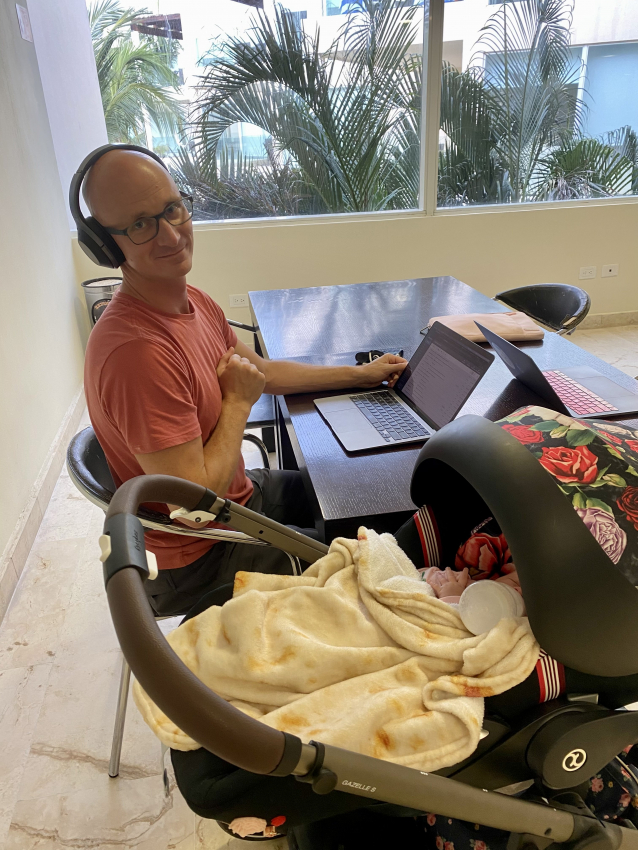
You shouldn’t choose a job based on the fact that you can do it from the road. You need a set of skills and enjoy what you’re doing. After all, you won’t be on holiday, you still need to work just like you did before so need to enjoy what you do or your experience will be miserable.
If both you and your partner work make sure that your partner is on board with everything. I know plenty of couples who tried the digital nomad life and then realized that one of them prefers life at home.
Legal Aspects of Digital Nomad Life
Once you have a job you can do remotely or establish a company that can sustain you, you must think of the legalities of your move. I think many people forget that you cannot “just go” because it will create a lot of issues for you in the future. Especially if you have kids with you.
Technically speaking you cannot work anywhere on a tourist visa, even if you work for a company based in your home country, so what digital nomads do is illegal. Nowadays, many countries have started special visas for digital nomads, but let’s be real: a vast majority of people just do it anyway because it’s hard to enforce a real punishment for it.
Remember that when you’re entering any country you must say that you’re “just visiting” and put tourist.

Another aspect of legality is that you need to pay taxes somewhere. If you’re a nomad you’re in the so-called a nomad tax trap. If you work for someone they’ll handle it for you, but there are certain caveats.
The thing it that it’s getting harder and harder to live “nowhere” and still enjoy the tax benefits of perpetual travel.
How do you pay taxes as a digital nomad?
If you’re a US citizen you need to file taxes in the US even if you permanently relocate elsewhere. If you have your own company you need to legally register it, pay fees and taxes for it and keep everything up to date. It’s subject to penalties or you can even lose your passport for not complying with it.
Many people freak out when they hear that in the US you need to file taxes while you’re living elsewhere, but it’s actually easier than for other nationalities. If you meet the physical presence test by spending 330 days out of a 365-day period in a foreign country or country, then you can take the Foreign Earned Income Exclusion (FEIE). As long as you don’t make over $100,000.
Under the FEIE, the US doesn’t ask you to prove where your new tax residence is (you can out your Airbnb address) as long as you spend enough time outside of the United States to prove that it is no longer your home. That doesn’t necessarily mean that you’re going to pay zero tax, there are other things involved, but it’s easy.
Citizens of countries with residence-based taxation (eg. most of Europe) who want to travel and save on taxes must find a new tax home.
Keep in mind that if you’re spending more than 183 days in a country you automatically become a tax resident is that country, but in some instances even less. You need to avoid double taxation which isn’t always easy to figure out on your own. It’s a lot of paperwork and a headache to arrange.
Unlike you see on Instagram in people’s bios, officially you cannot live anywhere. Some places might refuse you entry if you don’t have a story to prove, like a legit address somewhere with bills. Saying that you live with your parents again might not always cut it.
Dealing with legal issues also apply to children in terms of vaccination rules, schools. You also need to think about your kids future on top of your own. As much as you might think that unschooling is fantastic, It cannot be denied that most universities require a properly accredited school leaving certificate so you would be blocking your child from doing something they might want to do in the future.

Handling Money as a Digital Nomad
Freelancers and entrepreneurs never really know exactly how much they’ll bring home at the end of each month and that’s the hardest part. You need to be prepared that living as a digital nomad isn’t a vacation.
If, for example, you’re living in Mexico you might not be able to visit fancy waterparks and other attractions like you would on vacation. You need to set a budget and stick to it. There’s no need to go sightseeing each day as tourists do, because you need to have a workweek. Otherwise, you’ll blow your money away and your work and income will suffer.
Travel makes you realize how much just living costs. Laptops, electricity, internet, medicine, anything costs money.
The emergency fund is not often talked about, but a must. You might not need a day-to-day enormous expenses, but if your laptop (aka office) or other tools get stolen you need to rebuy them instantly. If your RV breaks, repairs are often in 5-figure digits. Or since we’re talking about becoming a digital nomad with a family… what if you suddenly get pregnant only to discover that maternity costs are not covered in your insurance (happened to me)?
You need at least 10,000 emergency funds, and I’m not exaggerating.
Health Insurance
Most digital nomads disregard the need for health insurance if they’re relatively healthy. Then, if something happens they’re screwed (and this is why you also need a significant emergency fund).
You might suddenly get sick or get pregnant, and then you’re going to be subject to thousands of thousands of medical costs out of pocket. Here are the best insurances for digital nomads.
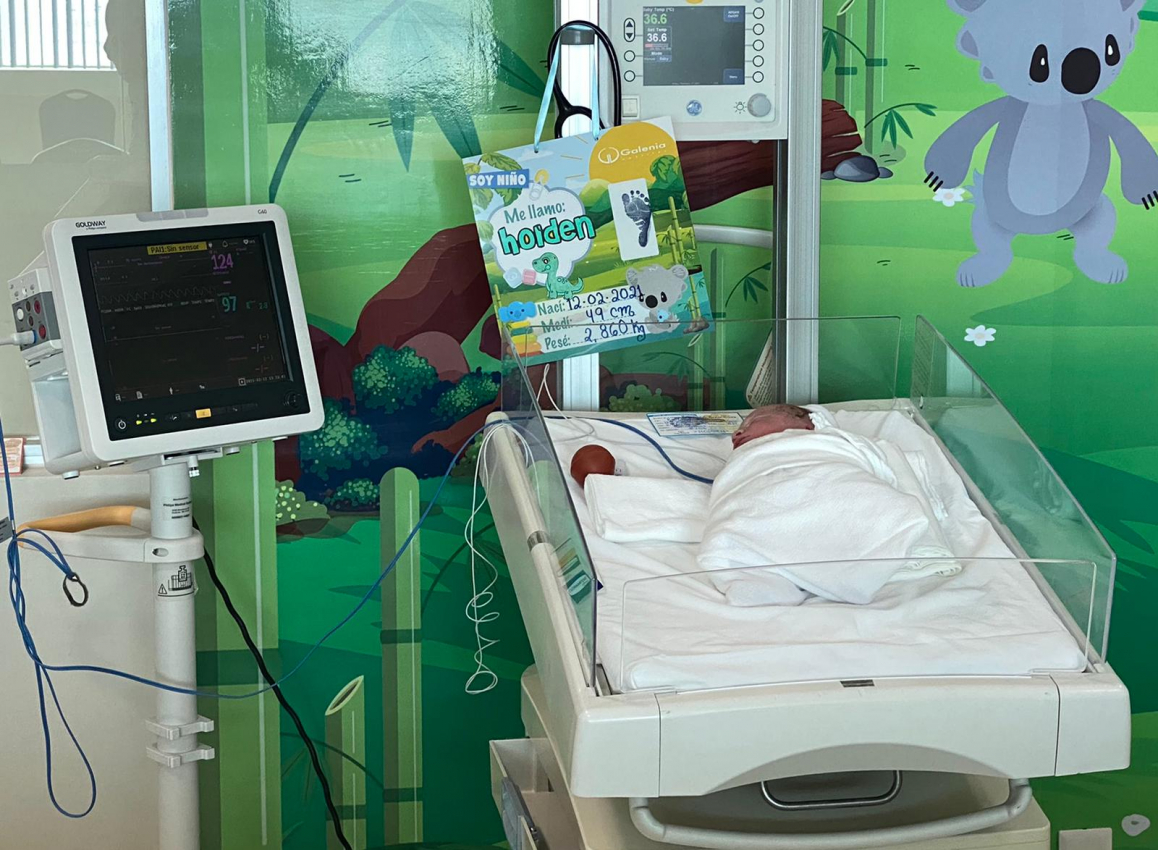
Childcare on the Road
First things first… influencers often make it seem like every kid can be a traveling kid. New parents to just one baby always love to put up things that “it’s because we’re flexible so the child is too”. This is the biggest scam I’ve ever heard.
I admit it, I’ve been one of those parents too when my first son was born. He was an excellent travel baby and I honestly thought, what’s the issue with traveling with a baby and believed that it’s thanks to our flexibility…
Until my second son was born. We did nothing differently – same parenting techniques, same flexibility (he was also born in a different country), and guess what?! It was impossible to travel with him for the first few months! We had to take a road trip to another town to get his passport and we had to fly with him and this wasn’t fun for any of us… let’s be real: even driving to the park for 5 minutes was a nightmare because he hated the car (still does actually) and cried most of the afternoon nonstop because of his colics. Can you imagine driving and living in a small RV with a baby who cries nonstop along with a hyperactive toddler? Good luck with that.
Am I telling you that you cannot be a digital nomad with some children? Absolutely not. But, I will tell you that you might need to adjust your expectations. We had to wait it out with baby Holden and do things that are easier – stay in an apartment, take smaller exploration trips before jumping into bigger things. The same thing happened when my older son Dylan entered his worst stage of toddlerhood or potty training… You don’t want to spend hours driving around or travel when you’re constantly worried that your child will need to pee every 10 minutes.
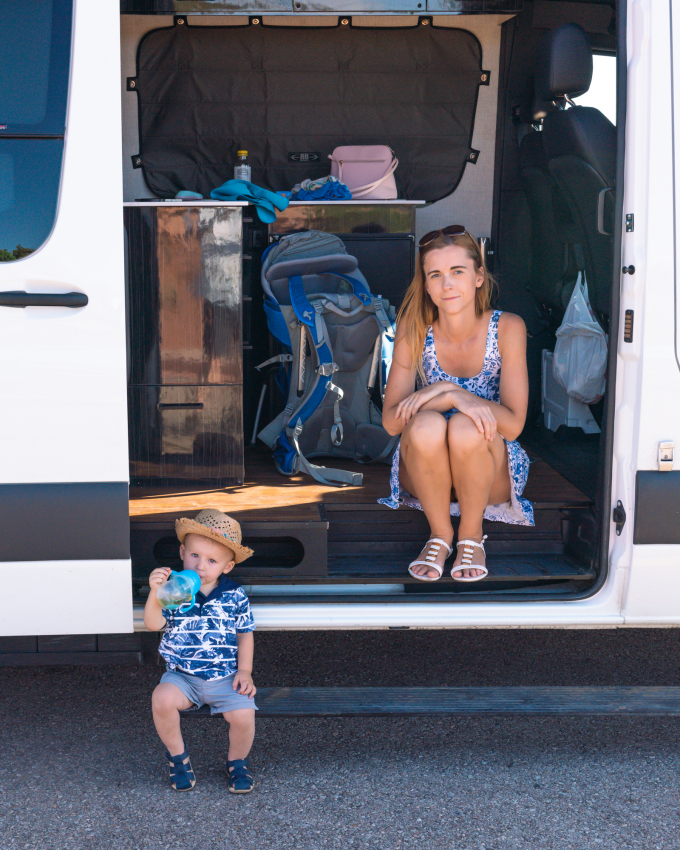
Your kids might not share your enthusiasm for resettling every other month. They also need school, entertainment, friends and things that require your time, energy and money.
Being a digital nomad with kids doesn’t mean that you need to keep on moving constantly. We usually get a base somewhere for a year or two and travel from that base while working on the road. That way kids have a circle of friends, childcare situation is easier and we get to have a break.
Most people wait to become digital nomads until their kids are a bit older, which I consider the worst and biggest mistake. Traveling and moving with babies is easy. Toddlers are a different story.
You baby won’t complain that he’s in a different country, they don’t care. They also sleep a lot so you have time to work and they don’t need any toys. As long as you’re flexible in terms of changing formulas or diaper types, and accept that you cannot own crap a typical family owns (stop eyeing that fancy Snoo bassinet), then you’ll be fine.
Traveling and working with babies was a piece of cake. Once the children become mobile, you need to decide whether you need to divide the childcare between both you and your partner or figure out other forms of childcare.
We had no grandparents to babysit, and we quickly realized that splitting day-to-day care doesn’t work for our family. So our options were daycare or babysitters while we work.
In certain places finding temporary childcare was easy, but in others was not. My kids went to a great local school in Mexico that we keep returning to every winter, but if we wanted to find a temporary daycare somewhere in the US it’s expensive and you need to wait for months for a spot to open up.
Many digital nomads work from coffee shops – I still reminisce about our frequent sessions at Ah Cacao in Playa del Carmen. With kids, however, it’s not always possible.
Most parents work while their kids nap, but if your kids don’t nap (like mine), then you need to either work at night or figure out childcare and time matters. If the internet goes down at the coffeeshop, it’s not always an issue when you have a whole day, but if you have a limited time when your babysitter comes then it’s a tragedy.
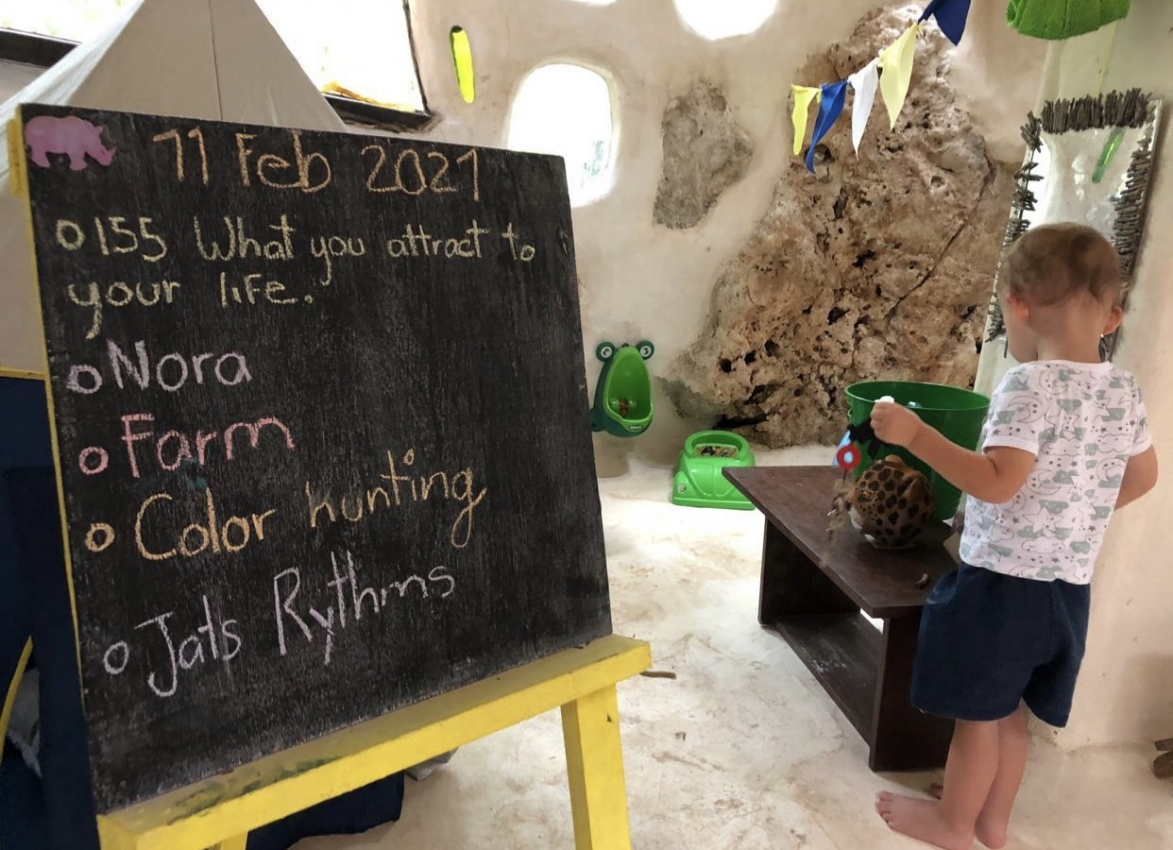
Schools for Children
Once your kids are older they need school. The trend of worldschooling is spreading, but many people forget that it’s under homeschooling umbrella, which isn’t even legal everywhere. It’s possible if you’re an American or Australian citizen, but most places in Europe don’t allow it.
Homeschooling on the road isn’t for everyone, but it doesn’t mean there are no other options. If you create longer bases, your kids can go to local schools. Bilingual schools will obviously cost you, but everything costs money.
In this set up however, you need to navigate school holidays for your travels, but these days, you can sign kids up for any type of school.
The school doesn’t necessarily mean a cement building that confines children (I feel like they’re more confined to their iPad education) – my kids went to a fun school in Mexico that was child-led and in the middle of the jungle, teaching them practical and interesting things. All screen-free.
Importing & Traveling with Pets
Having pets is one of the most common reasons many people often say “I would move, but I have a (insert animal type)”. The thing is, you can travel with a pet. We’ve done it with our cat, who’s been to 10 countries already! There’s even a guy who sails with a pet chicken.
The most common pets like dogs and cats, can travel fairly easily. If you have an RV or sailboat, that’s not an issue whatsoever, but we don’t and Poofy the Cat travels by plane just fine.
Having a cat naturally limits us in a way, as some countries require quarantines or only allow cats to arrive in cargo (which is completely fine, I just don’t want to send my cat in cargo) so we just don’t go there with him.
There are plenty of places where cats and dogs can just arrive as long as they’re microchipped and have all their vaccines in order. Poofy even has a European passport. I wrote a separate post on how to travel with a cat.


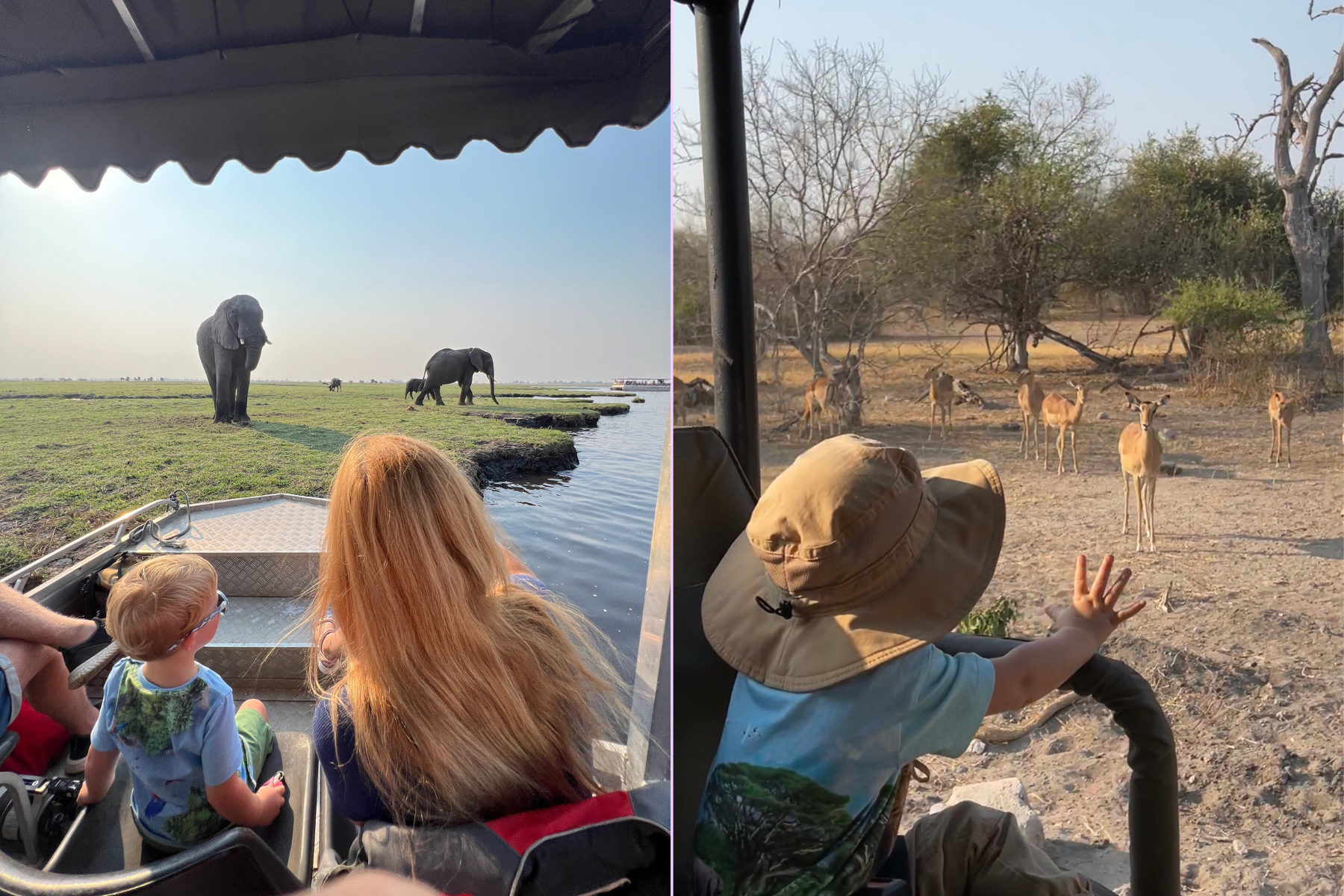
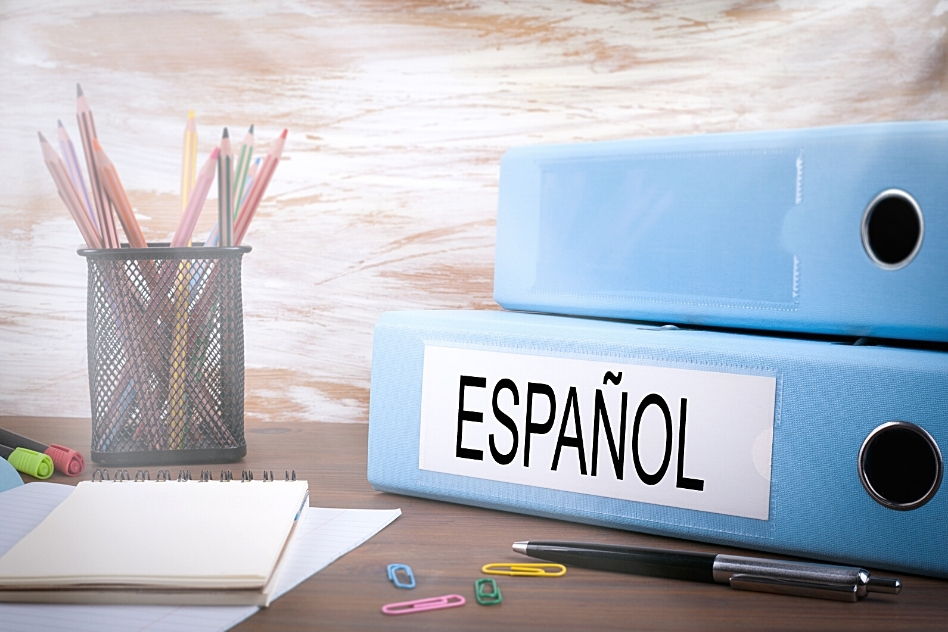




Hi, thanks for this really informative and inspiring post! Just wondering if constantly moving from one place to another, say every year, has any emotional or social learning impact to the child? I’m all set to go be a digital nomad this year but that question just came up in my mind and I don’t want my son (toddler) to have any social problems later on because of my decision to be a digital nomad. Thanks again!
It’s a totally valid concern! I’ll be very honest: it really depends on the child and their age and your set up. We always made sure that the kids are in daycare with their peers but at some age kids start to notice… my son is more mature for his age so he wanted to stay, but for most kids it’s about 5 when they want to stop moving very fast. Some families move every month or two and I personally believe it’s not good for the kids to leave their friends after a few weeks or learn a new language too often… so staying longer at a destination is crucial. For example, we go to Mexico every year and my son is excited to attend the same school when we go.
Let’s be real though, at a certain age the vast majority of kids just want to have friends and not travel with their parents. They might not want to move either, especially during their teenage years so do it when they’re very small.
Hi! Interesting read! Curious about putting children in school while abroad. So, you don’t need to be an official resident to enroll your student in school in another country? Or was your child enrolled in a private school?
Thanks!
It depends on the country, school type and so on. In Mexico, public schools are only available to residents but either way many people prefer private schools – my son along with other kids were going before we got residency, because they don’t care. In the US, your immigration status doesn’t matter either for any school but you must apply on time and show proof of address – both public, private or charters. In France, all kids have right to education starting at 3 years as long as you have proof of address you can send them to a public school.
Hi there, we are looking into staying in Mexico to send our toddler to school to help her learn Spanish. Would you mind sharing the name of the school you go to there? Thanks for all the info!
It depends on where in Mexico are you planning on staying. If in Playa del Carmen here are all the best schools: https://annaeverywhere.com/moving-to-playa-del-carmen-with-kids/ , but keep in mind that they often have a few months long waitlists.